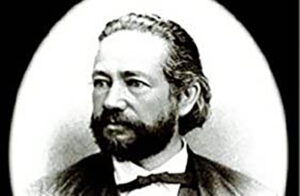By Lonnie Wilkey
Editor, Baptist and Reflector
lwilkey@tnbaptist.org
Al Mohler is probably one of the most recognizable Southern Baptist leaders in our convention today. I have known Al for more than three decades, beginning when he was editor of The Christian Index in Georgia.
I can’t say I have always agreed with Mohler, president of Southern Baptist Theological Seminary, especially when it comes to Calvinistic views. It’s no secret that Southern Seminary has been a leading proponent of Calvinism.
Be that as it may, that doesn’t mean we can’t agree on some issues. I applaud the stand he and trustees of Southern Seminary took Oct. 12 during their trustee meeting.
Southern Seminary, founded in 1859 in Greenville, S.C., has received pressure in recent months by some Southern Baptists to remove the names of founding president James P. Boyce and founding faculty members John Broadus, Basil Manley Jr., and William Williams from seminary buildings because they all once owned slaves.
Seminary trustees voted to retain the names, but also made a strong statement about where the seminary stands today in regard to racism. Trustees voted to provide up to $5 million in scholarships for African American students over the next few years.
Mohler said the seminary has to recognize both “the burden of history and the blessing of heritage.”
 He stressed the seminary is “not going to erase our history in any respect or leave our history unaddressed. We’re trying to do what is right for a Christian institution. … We’re seeking to respond to the moral and theological burden of history by being a far more faithful institution in the present and in the future than we’ve been in the past and in this central respect we acknowledge a special debt to African American Christians.”
He stressed the seminary is “not going to erase our history in any respect or leave our history unaddressed. We’re trying to do what is right for a Christian institution. … We’re seeking to respond to the moral and theological burden of history by being a far more faithful institution in the present and in the future than we’ve been in the past and in this central respect we acknowledge a special debt to African American Christians.”
Mohler noted that the seminary founders did not just “establish the school, they defined the school theologically.” He added that the founders made great sacrifices when it appeared the Civil War might force the school to close. “Without the founders, there would be no Southern Seminary,” he concluded.
Southern Seminary trustee David Gray of Ohio summed up the trustees’ action very well and it applies to our country in the past and today.
“What happened today is a demonstration of the grace of God, where men who were definitely flawed, did something very good in starting this seminary. But they also did some things that were very bad. That’s how human nature is. All of us have sinned and fallen short of the glory of God. But God makes use of even sinners.”
Amen. That statement goes beyond the history of the seminary. It applies to our nation as well.
Those who wish to rewrite America’s history might want to reconsider. Some of the founding fathers did own slaves. Was it right? No. Was it an acceptive practice during that era? Yes. And though that does not condone the fact some of the country’s founding fathers owned slaves, neither should it erase the accomplishments of men like George Washington, Thomas Jefferson and others who helped establish the United States of America.
Like the seminary’s founders, some of our nation’s founders also were “flawed” because it is human nature. We are all flawed in some way, but as Bro. Gray stated, “God makes use of even sinners.” For that, I am grateful.
Thank you, trustees of Southern Seminary, for having the wisdom to not rewrite the seminary’s storied history, while at the same time, making a strong statement against racism in the present and in the future by establishing the scholarships for African Americans.
May all Americans follow your example. B&R

